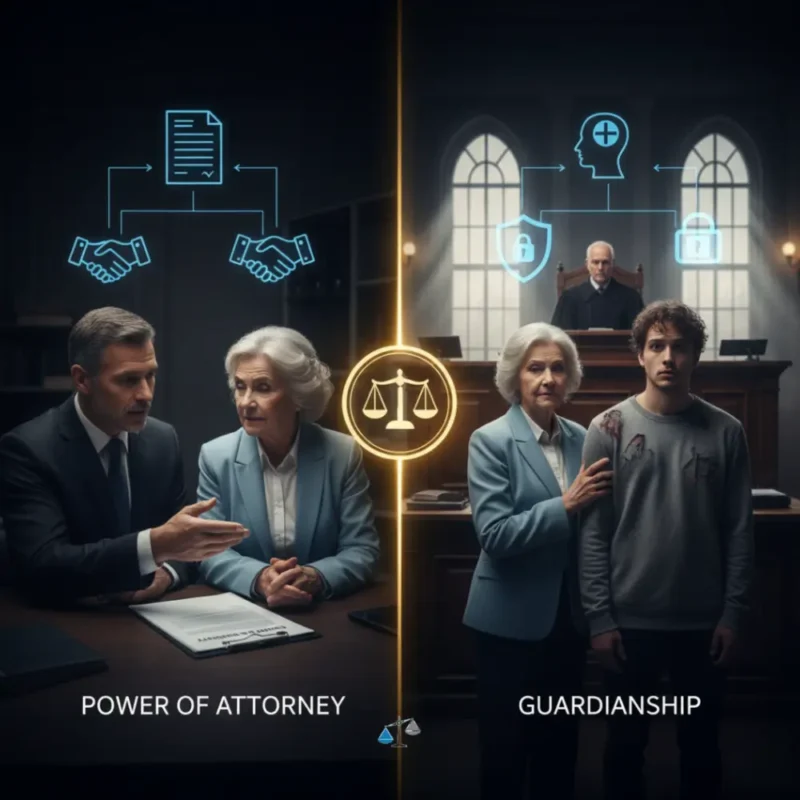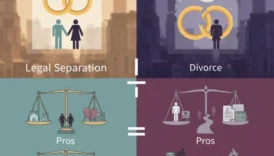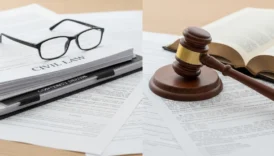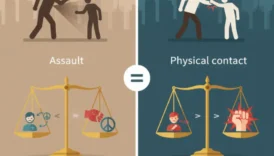Power of Attorney vs Guardianship: What’s the Legal Difference?

When an individual can no longer manage their own financial, medical, or personal affairs, the law provides different mechanisms to ensure their well-being and protect their interests. Two of the most common solutions are Power of Attorney (POA) and Guardianship. While both grant someone else the authority to act on behalf of another person, they operate under very different rules, procedures, and legal consequences. Understanding these distinctions is essential for families, caregivers, and individuals planning ahead for potential incapacity.
What Is a Power of Attorney?
A Power of Attorney (POA) is a legal document that allows an individual, known as the principal, to designate another person, called the agent or attorney-in-fact, to make decisions and act on their behalf. This arrangement is often created voluntarily while the principal is still mentally competent and able to understand the scope of authority being granted. Because of its flexible nature, a POA can be tailored to cover a wide range of needs, from managing financial accounts to making critical health care choices.
There are several types of POA, each designed for different circumstances:
- General Power of Attorney – Provides broad authority to the agent to handle most legal and financial matters.
- Durable Power of Attorney – Remains valid even if the principal becomes incapacitated, making it a common tool for long-term planning.
- Limited or Special Power of Attorney – Grants authority for specific tasks, such as selling a house or managing a single transaction.
- Medical Power of Attorney – Gives the agent the power to make health care decisions if the principal is unable to do so.
One of the most important features of a POA is its revocability. As long as the principal is mentally competent, they may revoke or change the document at any time. This gives the individual significant control over who manages their affairs and under what conditions.
For example, imagine an elderly person who is preparing for surgery. They might sign a durable medical power of attorney to ensure that if complications arise, a trusted family member can make treatment decisions. Alternatively, a business owner traveling abroad could create a limited power of attorney to authorize someone to sign documents on their behalf during their absence.
In essence, a POA is about proactive planning. It allows individuals to prepare for potential incapacity in advance, choosing someone they trust rather than relying on a court to appoint a decision-maker. However, because it is created voluntarily, it requires that the principal is of sound mind at the time of execution.
What Is Guardianship?
Guardianship is a legal relationship established by a court when an individual, known as the ward, is deemed incapable of managing their personal, financial, or medical affairs. Unlike a Power of Attorney, which is voluntarily created by the individual while they are competent, guardianship arises only after a legal process determines that the person can no longer make sound decisions for themselves.
A court typically appoints a guardian—often a family member, but sometimes a professional or even a public guardian—who is given legal authority to act in the best interest of the ward. Depending on the jurisdiction and the needs of the individual, guardianship may take different forms:
- Guardian of the Person – Responsible for personal and medical decisions, such as health care, living arrangements, and daily care.
- Guardian of the Estate (or Property) – Manages the ward’s finances, property, and assets.
- Plenary (Full) Guardianship – Grants authority over nearly all aspects of the ward’s life, often used when the ward has severe mental or physical incapacity.
- Limited Guardianship – Restricts the guardian’s power to specific areas, preserving as much independence for the ward as possible.
Unlike a POA, guardianship is not revocable by the ward once it has been granted, since the court has already determined the person is unable to make such choices. This means the court continues to supervise the guardian’s actions, requiring regular reports and accountability to ensure the ward’s rights and resources are protected.
For example, if an elderly individual suffers from advanced dementia and can no longer pay bills, understand medical treatments, or manage property, a family member might petition the court to become their guardian. The court, after reviewing medical evidence and testimony, may grant guardianship to ensure the person’s needs are met.
While guardianship provides strong protections, it is also considered a serious limitation of personal freedom. Because of this, courts often view it as a last resort, applying it only when less restrictive alternatives, such as a Power of Attorney, are unavailable or insufficient.
Scope of Authority and Areas of Use
The main distinction between Power of Attorney (POA) and Guardianship lies in the scope of authority granted and the situations in which each applies. While both mechanisms allow one person to make decisions for another, the extent of decision-making power and the manner in which it is obtained differ significantly.
Power of Attorney
A POA is highly flexible. The principal defines the scope of authority at the time of creating the document. This can be:
- Broad authority, such as managing all financial, medical, and personal matters.
- Limited authority, such as handling a single real estate transaction or making health care choices only.
- Temporary authority, for example while the principal is traveling or hospitalized.
The scope depends entirely on what the principal decides. The key point is that it originates from the voluntary consent of the person granting the authority.
Guardianship
Guardianship, on the other hand, is generally comprehensive and imposed by the court. The scope is determined by judicial order and may cover:
- Personal care – housing, health care, and daily living decisions.
- Financial management – paying bills, handling investments, and managing property.
- Legal representation – making binding decisions in legal matters.
Although courts can limit guardianship to certain areas (limited guardianship), the process tends to be broader and more restrictive of the ward’s independence.
Comparison in Practical Use
- POA Example: A business owner grants a trusted colleague power of attorney to sign contracts during an extended overseas trip.
- Guardianship Example: A court appoints a guardian to manage the finances and medical decisions of an adult with advanced Alzheimer’s disease.
In summary, POA empowers by choice, while Guardianship enforces by necessity. POA is a preventative measure created before incapacity, whereas guardianship fills the gap when no prior planning was made or when circumstances demand stronger legal intervention.
Legal Procedures: Appointment and Implementation
The process of establishing a Power of Attorney (POA) versus Guardianship is one of the clearest distinctions between the two. While both aim to authorize decision-making on behalf of another person, the way each is created—and the level of oversight involved—is very different.
Creating a Power of Attorney
Setting up a POA is generally straightforward. The steps usually include:
- Drafting the document – The principal outlines the type of POA, the powers granted, and the person who will serve as the agent.
- Meeting legal formalities – Most jurisdictions require the document to be signed in the presence of witnesses or a notary public.
- Choosing effectiveness – Some POAs take effect immediately, while others (often called springing POAs) become effective only when a specific event occurs, such as incapacity.
- Revocation – As long as the principal remains competent, they can revoke or change the POA at any time.
Because it is voluntary, the POA process is faster, less costly, and requires no court involvement.
Establishing Guardianship
Guardianship, in contrast, involves a formal court process. The typical steps are:
- Filing a petition – A family member, medical professional, or other concerned party files a petition requesting guardianship.
- Medical evaluation – Courts often require medical evidence to confirm the ward’s incapacity.
- Court hearing – A judge reviews testimony, medical reports, and other evidence to determine whether guardianship is necessary.
- Appointment of guardian – If approved, the court issues an order granting authority to the guardian, specifying whether it is full or limited guardianship.
- Ongoing oversight – Guardians are often required to file periodic reports with the court, especially concerning finances and the ward’s well-being.
Procedural Contrast
- POA: Private agreement, minimal legal hurdles, proactive planning.
- Guardianship: Court-driven, reactive to incapacity, often time-consuming and expensive.
In practice, creating a POA in advance can help families avoid the stress, delays, and costs of guardianship. However, when no POA exists—or when the existing one is challenged—guardianship becomes the only viable legal safeguard.
Rights and Responsibilities of the Decision-Maker
Both Power of Attorney (POA) agents and guardians are entrusted with serious authority, but the nature of their rights and obligations differs significantly. Understanding these responsibilities is crucial because misuse of authority can lead to legal consequences, financial harm, or loss of personal freedoms for the individual being represented.
Rights and Duties of a Power of Attorney Agent
An agent under a POA acts based on the powers specifically granted in the document. Their responsibilities generally include:
- Fiduciary duty – The agent must always act in the best interests of the principal, not for personal gain.
- Obedience to instructions – The agent must follow the limits and directions laid out in the POA document.
- Record-keeping – While courts do not typically oversee POAs, agents should maintain detailed records of financial transactions and decisions made.
- Termination of authority – Their authority ends if the principal revokes the POA, passes away, or if the court invalidates the document for legal reasons.
Because a POA is voluntary, the agent’s power is directly tied to the principal’s trust. This means the agent cannot go beyond what is explicitly written, and their decisions should reflect the principal’s known wishes.
Rights and Duties of a Guardian
Guardians, by contrast, are appointed by the court and operate under judicial supervision. Their responsibilities may include:
- Acting in the ward’s best interests – Guardians must make decisions that promote the well-being, health, and financial stability of the ward.
- Court accountability – Guardians are often required to submit periodic reports, financial statements, and updates on the ward’s condition.
- Broad authority – Unless limited by the court, guardians may control living arrangements, medical treatments, and financial decisions.
- Protection of rights – Even with authority, guardians must respect the ward’s fundamental rights, such as dignity and personal preferences, whenever possible.
Comparison in Responsibility
- POA Agent: Accountable mainly to the principal; court involvement is rare.
- Guardian: Accountable to the court; higher scrutiny and stricter obligations.
In short, a POA is rooted in trust and autonomy, while guardianship is anchored in protection and oversight. Both roles demand honesty, transparency, and a commitment to serving the individual’s best interests.
Advantages and Disadvantages of Each Option
Choosing between a Power of Attorney (POA) and Guardianship often comes down to balancing flexibility, cost, oversight, and the level of control each option provides. Both tools have unique strengths, but they also come with important limitations.
Advantages of Power of Attorney
- Flexibility – The principal can decide exactly what powers to grant and to whom.
- Proactive planning – Allows individuals to prepare for future incapacity in advance.
- Low cost and efficiency – Establishing a POA is typically faster and less expensive than guardianship, with little to no court involvement.
- Revocability – The principal can revoke or change the POA at any time, as long as they remain competent.
- Privacy – Unlike guardianship, POAs do not usually involve public court proceedings.
Disadvantages of Power of Attorney
- Potential for abuse – Because oversight is limited, an untrustworthy agent may misuse their authority.
- Limited protection – If no POA exists before incapacity, it cannot be created later.
- Dependence on trust – Effectiveness depends heavily on choosing a reliable and competent agent.
Advantages of Guardianship
- Court supervision – Provides a formal safeguard, as the guardian is accountable to the court.
- Comprehensive authority – Guardianship can cover all aspects of the ward’s life, ensuring strong protection for vulnerable individuals.
- Protection when no planning exists – If a person becomes incapacitated without a POA, guardianship ensures someone can legally step in.
- Clear legal authority – Guardians have powers defined and enforced by court order, reducing uncertainty.
Disadvantages of Guardianship
- Costly and time-consuming – Requires legal proceedings, attorney involvement, and ongoing court reporting.
- Loss of autonomy – The ward permanently loses the ability to make their own decisions once guardianship is established.
- Emotional strain – Court involvement can be stressful for families, especially if there are disputes over who should serve as guardian.
- Inflexibility – Unlike a POA, guardianship cannot be easily modified or revoked by the ward.
Summary
- POA works best when established early with trusted individuals, offering flexibility and autonomy.
- Guardianship is often the only solution when proactive planning was not done, but it comes at the cost of independence and privacy.
Key Differences Between Power of Attorney and Guardianship (with Comparison Table)

Although both Power of Attorney (POA) and Guardianship are designed to protect individuals who cannot manage their own affairs, the way they function is fundamentally different. Understanding these differences can help families and individuals choose the right path depending on their circumstances.
Major Contrasts
- Creation – POA is created voluntarily by the individual, while guardianship is established by a court after incapacity.
- Control – POA preserves autonomy by letting the principal decide who will act on their behalf, whereas guardianship removes this choice.
- Flexibility – POA can be customized and revoked; guardianship is rigid and court-supervised.
- Oversight – POA has little external oversight; guardianship involves strict court monitoring.
- Timing – POA must be created before incapacity, while guardianship only comes into play once incapacity is proven.
Comparison Table
| Aspect | Power of Attorney (POA) | Guardianship |
|---|---|---|
| Creation | Voluntary, by the principal while competent | Court-ordered after incapacity is proven |
| Authority | Defined by the principal (broad, limited, or specific) | Determined by the court, often comprehensive |
| Revocability | Revocable anytime while competent | Not revocable by the ward once established |
| Oversight | Minimal, relies on trust in the agent | Continuous court supervision and accountability |
| Cost & Time | Generally inexpensive and quick | More expensive and time-consuming due to legal process |
| Autonomy | Preserves autonomy and personal choice | Restricts autonomy significantly |
| Best Use Case | Proactive planning for potential incapacity | When no POA exists and incapacity is already present |
Practical Example
- POA: An individual facing a high-risk surgery creates a durable medical POA so a trusted relative can make health care decisions if needed.
- Guardianship: A court appoints a guardian for an adult with severe dementia who never created a POA, ensuring someone can legally manage finances and medical care.
In essence, a Power of Attorney is preventative and voluntary, while Guardianship is reactive and mandatory once incapacity is confirmed.
When to Choose Power of Attorney vs Guardianship
Deciding between a Power of Attorney (POA) and Guardianship depends largely on timing, capacity, and the specific needs of the individual. Each option serves a different purpose, and knowing when to use one over the other can prevent legal complications and protect the person’s best interests.
When to Use a Power of Attorney
A POA is most effective when created before incapacity occurs. It is the tool of choice for proactive individuals who want to ensure their affairs are managed smoothly if they are ever unable to do so themselves. POA is ideal in situations such as:
- Health planning – Creating a medical POA before undergoing surgery or in anticipation of age-related health decline.
- Financial management – Delegating authority to handle investments, property, or business operations during travel or illness.
- Temporary absence – Allowing someone to sign contracts, pay bills, or manage legal matters while the principal is abroad.
When to Use Guardianship
Guardianship becomes necessary when:
- No POA exists – If the individual never created a POA and is now incapacitated, guardianship may be the only option.
- Severe incapacity – Conditions such as advanced dementia, traumatic brain injury, or developmental disabilities may require full guardianship.
- Disputes or abuse concerns – If there is evidence that a POA agent is misusing their power, courts may revoke the POA and appoint a guardian.
- Comprehensive protection needed – Guardianship provides a legally enforceable structure with court supervision, which can be reassuring in high-risk cases.
Choosing Between Them
- Proactive planning favors POA, as it allows individuals to decide who will manage their affairs and under what terms.
- Reactive situations require Guardianship, particularly when incapacity has already occurred and no prior arrangements exist.
In practice, many legal professionals advise creating a durable POA early as part of estate planning. Doing so can significantly reduce the chances that a costly and restrictive guardianship will be required later.
Real-Life Scenarios and Examples
Examining real-life situations can make the differences between Power of Attorney (POA) and Guardianship much clearer. These scenarios illustrate how each legal tool functions in practice and why one may be chosen over the other depending on circumstances.
Scenario 1: Proactive Planning with POA
Maria, a 68-year-old retired teacher, is preparing for hip replacement surgery. She is mentally competent and wants to ensure her medical and financial affairs are managed in case complications arise. Maria signs a Durable Power of Attorney naming her daughter as her agent for health care and finances. When Maria is temporarily incapacitated after surgery, her daughter can pay medical bills, make treatment decisions, and manage bank accounts. Once Maria recovers, she resumes full control, and the POA remains in effect for any future incapacity.
Scenario 2: Absence and Temporary Authority
James, a business owner, frequently travels internationally. To prevent delays in his company’s operations, he executes a Limited Power of Attorney granting his business partner the authority to sign contracts and manage specific transactions during his absence. This arrangement gives James peace of mind, knowing his business won’t stall while he is abroad.
Scenario 3: Guardianship for Severe Incapacity
Robert, an 82-year-old widower, suffers from advanced Alzheimer’s disease. He never created a POA, and now he cannot make decisions about his medical treatments, living arrangements, or financial affairs. His son petitions the court for Guardianship. After medical evaluations confirm Robert’s incapacity, the court appoints his son as guardian with authority over both personal and financial matters. The court requires annual reports to ensure Robert’s needs are met responsibly.
Scenario 4: Abuse of POA Leading to Guardianship
Linda, an elderly woman, granted her nephew broad authority under a POA to manage her finances. However, family members notice suspicious withdrawals and unpaid bills. They challenge the POA in court, presenting evidence of misuse. The judge revokes the nephew’s authority and appoints a Guardian of the Estate to manage Linda’s financial affairs under court supervision.
Scenario 5: Limited Guardianship for a Disabled Adult
Samantha, a 25-year-old woman with a developmental disability, is able to make some personal decisions but struggles with complex financial management. The court appoints her parents as Limited Guardians of her estate while allowing her to retain authority over daily personal choices. This preserves her independence while ensuring protection for her financial well-being.
Lessons from These Examples
- POA works best when planned in advance, offering flexibility and personal choice.
- Guardianship is essential when incapacity exists and no planning has been done, or when abuse under a POA occurs.
- Courts often prefer limited guardianship when possible, balancing protection with autonomy.
FAQs About Power of Attorney vs Guardianship
What is the main difference between Power of Attorney and Guardianship?
A Power of Attorney (POA) is voluntarily created by an individual while they are competent, whereas Guardianship is court-ordered after someone is found legally incapacitated.
Can a Power of Attorney prevent the need for Guardianship?
Yes. If a valid POA exists, guardianship is often unnecessary. Courts usually prefer honoring a POA before imposing guardianship.
Who can create a Power of Attorney?
Any competent adult can create a POA, as long as they understand the powers they are granting and the legal consequences of the document.
Who can serve as a guardian?
Typically, close family members serve as guardians. However, if no suitable relatives are available, the court may appoint a professional guardian or even a public agency.
Can a Power of Attorney be revoked?
Yes. A POA can be revoked at any time as long as the principal is still mentally competent. Guardianship, however, cannot be revoked by the ward.
Does guardianship remove all rights from the ward?
Not always. Courts can establish limited guardianship, which allows the ward to retain certain rights while transferring others to the guardian.
What happens if a POA agent abuses their authority?
If misuse occurs, family members or other interested parties can petition the court to review the agent’s actions. The court may revoke the POA or appoint a guardian.
Is a lawyer required to set up a Power of Attorney?
Not necessarily. While a lawyer is not legally required in most jurisdictions, professional guidance is strongly recommended to ensure the document meets legal standards.
How long does guardianship last?
Guardianship usually lasts until the ward regains capacity (rare in cases like dementia) or until the ward’s death. In some cases, the court may also modify or end guardianship if circumstances change.
Which option is better for long-term planning?
Generally, a Durable Power of Attorney is preferred for long-term planning, as it allows individuals to make proactive decisions. Guardianship is a last resort when no POA exists or when circumstances require court intervention.






